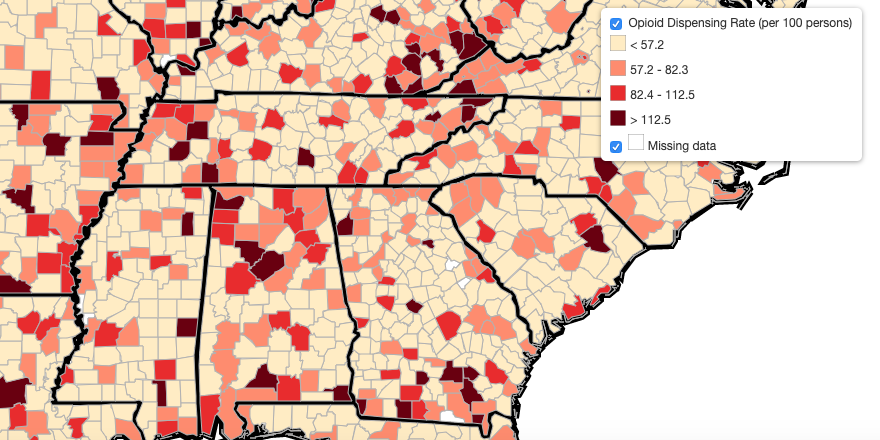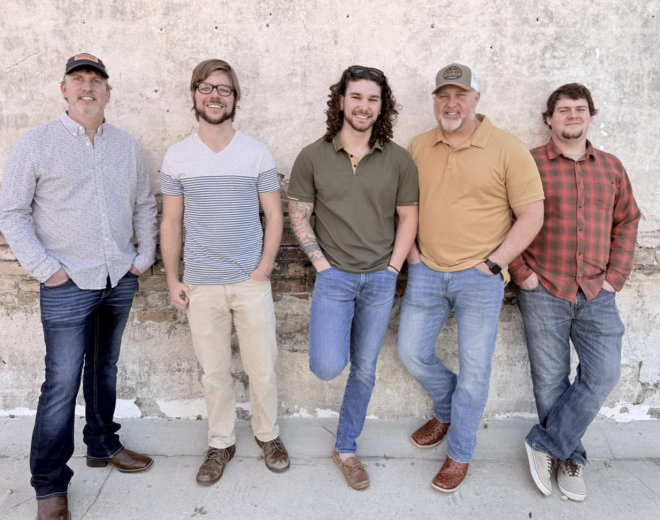Bill would help rural areas battle opioid addiction
Published 5:00 am Sunday, December 12, 2021

- CDC maps shows the geographic distribution in the United States, at both state and county levels, of retail opioid prescriptions dispensed per 100 persons. Darker red areas have the highest opioid prescription dispense rate. Map by CDC
ATLANTA – A federal bill to help prevent opioid addiction, overdoses and deaths in rural communities is nearing approval.
Sponsored by Georgia Sen. Jon Ossoff and Sen. Chuck Grassley, R-Iowa, the Rural Opioid Abuse Prevention Act would help ensure that rural communities with a high level of opioid overdoses have the resources needed to respond to the crisis.
Trending
“Like so many Georgians, I’ve lost friends to the opioid epidemic. My bipartisan bill with Sen. Grassley will fund efforts in rural communities to prevent and treat addiction and to save lives,” said Ossoff after introducing the bill in September.
According to the Centers for Disease Control and Prevention, more than 75,000 people died of opioid overdoses between April 2020 and April 2021.
CDC data shows that Tennessee was in the top 10 states with the highest rate of reported prescription opioid deaths in 2019, at rate of 7.6 deaths per 100,000; neighboring Georgia and Mississippi had reported opioid death rates of 3.6 and 3.2 deaths per 100,000 respectively in 2019.
While data from Alabama did not meet CDC inclusion criteria for prescription drugs, community leaders have reported incidents of other opioid-related overdoses.
“Our community is like any other around the state, we see heroin or heroin/fentanyl overdoses throughout our community,” said Matt Gentry, sheriff of Cullman County in north Alabama. “We live in between two major cities, Huntsville and Birmingham, and of course, we’re within the southeast of Atlanta. So it’s an issue that we face. Meth is still our most prevalent drug in Cullman County. But you know, heroin and opiates is an issue. We’re not seeing that so much on the prescription side is what we’re used to.”
The Rural Opioid Abuse Prevention Act would provide grants to rural communities heavily impacted by opioid addiction and abuse to create a response program that identifies gaps in community prevention, treatment and recovery services for individuals who encounter the criminal justice.
Trending
The grant would also provide funds to the community programs to implement treatment protocols.
Some communities, such as Moultrie, Georgia, have programs in place that provide an alternative to incarceration for drug addiction related arrests or overdoses, including substance about court programs.
Lynn Wilson of the South Georgia chapter of the National Alliance on Mental Illness, also lauded law-enforcement training that teaches first responders how to respond to overdoses.
“What we have found over the years is that it isn’t uncommon for someone with a mental health diagnosis to also have an addiction issue. Because often, they try to cover up whatever’s going on in their brain with something that will sort of dull their thoughts and that could be many different kinds of addiction, which would include opioids as well,” Wilson said. “The premise to that training is first of all for the first responder to recognize that it is an overdose and second to administer the Naloxone treatment appropriately and then to get that person to treatment so that they can begin a recovery process.”
A CDC data map shows Thomas, Tift and Colquitt — where Moultrie is the county seat — counties in rural South Georgia had among the highest opioid dispensing rates in the state.
The U.S. Senate passed the Rural Opioid Abuse Prevention Act Wednesday and the bill now awaits approval in the House.
“We’ve made some progress in fighting the opioid crisis, but with overdose deaths rising, Congress needs to act. Our bill will help communities in Iowa and across the country to prevent and handle any surge in opioid overdoses. I look forward to working to pass this bipartisan legislation, and preventing more Americans from falling victim to addiction, including those individuals in the criminal justice system,” Grassley said.






